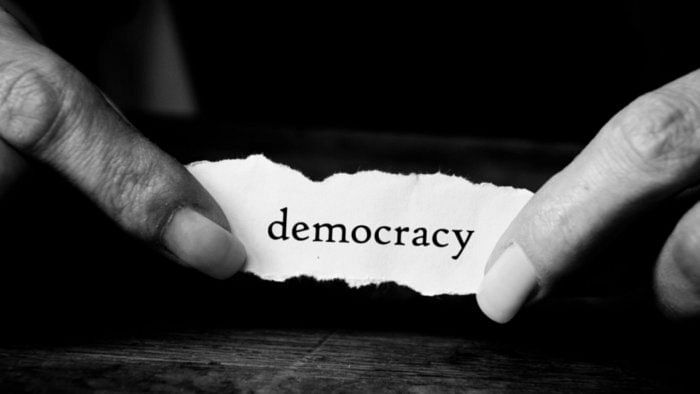
December is the cruellest month for Indians. Two of the world's biggest disasters took place in this month, both man-made. Thousands among us continue to suffer the aftermath, some with every breath they take; others as a painful memory that can't be forgotten. This suffering that lingered on all through these decades could have been reduced, but the power to do so lay in the hands of the very forces that caused it. And those powers remained unmoved.
The 40-tonne gas leak from Bhopal's Union Carbide plant on December 3, 1984, which left 3000 dead within three days, could have been avoided. Bureaucrats such as M N Buch had advised shifting the plant that dealt with poisonous chemicals outside the city because of the growing population around it. Local journalist Rajkumar Keswani had highlighted in a series of reports, the possibility of a leak and the havoc it could create. Both Buch and Keswani were ignored.
Crony capitalism has become a new buzzword, but that very phenomenon ultimately led to the leak. Why did the management feel emboldened to cut costs for crucial safety measures? Why was Warren Anderson, Union Carbide Chairman, never tried for his crime? Why was the compensation arrived at in the Supreme Court in 1989 so meagre?
Read | Bhopal disaster: 37 years after, ground zero continues to haunt
Today, the number of those whose health has been ruined by the gas leak has grown to 5.7 lakh because the toxins inhaled that night affected the victims' children and grandchildren. Deformed babies and damaged lungs were the commonest effects of the leak; both spelt ruin for thousands of families. Yet, the handful of victims and activists still fighting have had to approach the Supreme Court for enhanced compensation, and the MP High Court to get adequate medical staff for the hospital set up for the victims. Even the hospital was set up on Supreme Court orders. Hearings on both petitions are pending.
"A handful still fighting" is one of the reasons that the sufferings continue in Mumbai, too, 30 years after riots broke out within hours of the Babri Masjid being demolished in Ayodhya. Nine hundred persons were killed in the violence then; not even 90 fought for them. Who can be blamed for that? Those under whose watch the violence took place did little to stop it and only the bare minimum to help victims later. The Mumbai riots were the only riots where a judicial commission's findings became national news and remained so for long. Yet, the recommendations of the B N Srikrishna Commission remain unimplemented.
Those who instigated the violence directly or indirectly rose to top government positions and were given state funerals. Policemen indicted by the Commission for the cold-blooded murder of unarmed Muslims who were simply sitting inside their homes or praying in their mosques were protected and promoted.
Victims, activists and lawyers fought doggedly in courts, but it wasn't enough. One of the lessons learnt from this long, tiring struggle is that the fight for justice is rarely won only through courts. When the killers have the backing of communal organisations, the State, or both, as was the case in Mumbai, the odds are too unequal. In Bhopal, too, the nexus between the State and Union Carbide was strong, and lasted even after Dow Chemicals bought over the Carbide plant.
Both these fights needed to be taken outside the courts too. They were, but not enough. Governments needed to see that a substantial number of citizens wanted justice to be done. The judges needed to see that, too, through packed courtrooms and consistent and prominent media coverage.
Alas, this happened neither in Bhopal nor in Mumbai.
But in a democracy, can citizens be blamed for failing to get justice for their fellow citizens? What of those in power? Isn't it there primary responsibility to work for the interests of those who elected them? Look at the list of those who could have ensured justice for the victims of these two disasters but didn't: Rajiv Gandhi, P V Narasimha Rao, L K Advani, P C Sethi, Arjun Singh, Sharad Pawar, Digvijaya Singh, Shivraj Singh Chouhan, Chhagan Bhujbal, Vilasrao Deshmukh, R R Patil... a who's who of leaders.
When those in power betray those who put them there, should the burden of getting justice fall on the latter? It should not, but the bitter experiences of struggles for justice in the world's largest democracy tell you that it does.
Expecting the handful who fought for the victims of Bhopal 1984 and Mumbai 1992-93 to have mobilised more people on their side seems harsh; but then we live in a flawed democracy where the State remains unaccountable.
(Jyoti Punwani is a journalist)
Disclaimer: The views expressed above are the author's own. They do not necessarily reflect the views of DH.